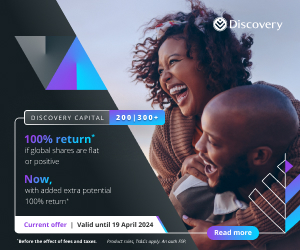Over the past five years there has been unprecedented growth in the popularity and influence of Discretionary Fund Managers (DFMs) in South Africa. At last count, there were more than 40 DFMs up and running.
The surge in popularity has been driven by a range of factors, including:
- The release of the first discussion paper on the Retail Distribution Review (RDR) which proposed increased scrutiny on an advisor’s investment process and the associated compliance requirements;
- More platforms (LISPs) developing the capability to administer model portfolios and communicating that to advisors in the market; and
- Fees dropping for DFM services to levels more palatable for advisors and their clients.
Why would an advisor outsource their investment process to a DFM?
The key benefit of outsourcing the investment process is to introduce an additional level of investment expertise into an advisor’s process. A DFM would be expected to provide detailed fund manager research to enable appropriate fund selection, portfolio construction skills, the continuous monitoring of portfolios, and rebalancing of portfolios when needed. The aim is to deliver consistent investment outcomes for clients over time.
The right DFM has the potential to be a transformative, long-term business partner to an advisory business.
Clearly, there are advisors who have the skills and experience to be able to implement their investment process themselves. However, another benefit of outsourcing this specialist requirement is that it allows the advisor to focus on building their core business and to have more time to service their clients.
A third benefit of outsourcing to a DFM is to provide administrative and implementation simplicity across the advisor’s business. The advisor has the ability to consistently and efficiently implement their investment advice across their client base by using a range of portfolios through a Discretionary Category II licence, either that of the DFM, or their own.

A fourth benefit of outsourcing to a DFM is one of governance and compliance. The DFM should be able to ensure that similar clients are treated consistently (and therefore reduce TCF concerns), that the advisor has a documented investment process, and that comprehensive due diligence is provided on the funds used.
The RDR discussion paper led to many claims that independent financial advisors (IFAs) would struggle to survive and thrive once RDR is implemented, and that IFAs would need to either sell their business to a corporate or outsource to a DFM.
We do not agree with that assertion. We believe that the majority of investment IFAs do not have to make material changes in their business to comply with RDR, and we do not believe that this should be the reason for using a DFM. It is an added benefit but should not be the key driver.
In summary, the services of a quality DFM can benefit a financial advisor in the following ways:
- An evidence-based investment philosophy and process that aligns with the business’s advice framework
- A sustainable investment range that is able to cater to different client needs
- Consistently managed portfolio solutions across the client base
- Access to a dedicated team of investment specialists
- Consistent and cost-effective implementation across different investment platforms
- Constant compliance with the various regulatory requirements.

All DFMs are not created equal
Advisors are clearly spoilt for choice given all the DFMs now operating in South Africa. However, because they are still a relatively new concept to many advisors, choosing a DFM can be overwhelming. The right DFM has the potential to be a transformative, long-term business partner to an advisory business.
We believe that the two most important factors that advisors need to consider when choosing a DFM are:
- Understand the unique value proposition of the DFM given how different the various DFMs’ offerings are, and how this value proposition complements the advice process.
- Make sure that there is a good culture and philosophy fit between the advisor and the DFM.
Meeting these considerations will decrease the probability of “buyer’s remorse” from an advisor who is getting something different from what they expected, and ensures that when differences of opinion emerge, there is common ground and respect between the parties to allow for a compromise that does not disadvantage the client.
Key factors to investigate when carrying out your due diligence on the DFM options include:
- Whether the DFM is independent and how important independence is to the advisor.
- The investment philosophy and performance history of the DFM.
- The depth of the DFM’s global and local research capabilities.
- Global and local portfolio construction capabilities.
- The skill and relevant experience of the core investment team.
- The DFMs back-office compatibility with the advisor’s current processes.
- The scale of the business.
- The fee structures.
In our opinion, DFMs do have an important role to play in helping advisors to professionalise and grow their businesses; ensure consistent investment outcomes; improve communication to clients and enable advisors to focus on their core role of giving comprehensive financial advice to clients.












